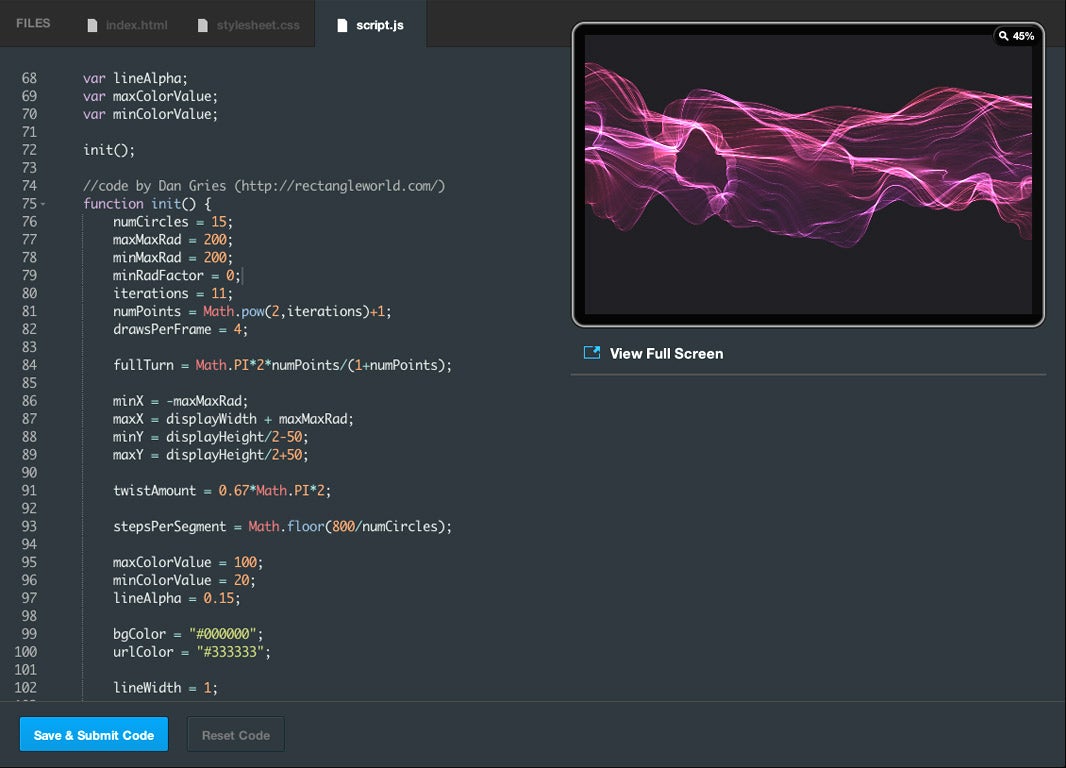The Independent's journalism is supported by our readers. When you purchase through links on our site, we may earn commission.
Rhodri Marsden: A real brain teaser – will I ever be able to crack code?
Geek Mythology

Many of us who consider ourselves technologically adept know next to nothing about how that technology works. It's embarrassing, but it's important to admit.
We pat ourselves on the back for having the remarkable ability to navigate our way through three levels of sub menus on an HD television, but barely ever give a thought to the heroic souls who constructed them by labouring over lines of code.
All we're good at, really, is using graphical interfaces that were designed and built by people cleverer than us. Even taking a peek at the code behind the website this article is published on is enough to make most of us wince and hurriedly close the window.
That ignorance, fear and antipathy that we display towards code is one of the main reasons for stopping the rot and getting children immersed in scripts and strings. From Code Club, the UK network of coding clubs for young people aged between nine and 11, to CoderDojo, a global movement of free clubs, we're hearing an increasingly strident message that was best summed up by Steve Jobs: "[Everybody] should learn how to program a computer, because it teaches you how to think."
Of course, if you've ever marvelled at the slick game-play in Call Of Duty or the impressive features of Final Cut Pro, you'd probably consider the prospect of writing anything useful somewhat daunting. But it is possible, even with minimal experience.
This was recently demonstrated by a homeless man in Manhattan by the name of Leo Grand; after being offered free coding lessons by a passing commuter, he seized the opportunity, and this week his first app – 3,621 lines of code that facilitate car pooling in New York – has been launched on iOS and Android to much acclaim.
Right, then. I've got a fairly analytical mind, I like maths and logic problems, I've built the odd website, so surely I could emulate Leo's achievement? This week, code.org is running Hour Of Code, an initiative to get people to take an initial 60-minute coding lesson; 5 million people worldwide have committed to participate, and I'm one of them.
On Monday, I decided to tackle an hour-long online lesson in Python, but I quickly became bogged down in syntax and started to wonder whether I'd plunged in at an optimistically high level.
Writers like myself may take pride in being pernickety and precise about punctuation, but if you get it wrong the worst thing that can happen is that someone will give you a pedantic rollocking in the comments section.
In Python, however, if you fail to indent lines, you miss spaces or use the wrong brackets, the program just won't run. That's a recipe for deep frustration for anyone like me who's a) impatient and b) hasn't taken a lesson in anything for years.
The Codecademy app, which has also been facilitating hour-long tutorials on coding basics this week, gave me an easier ride, but I still found myself in the absurd position of mumbling that the programming language "isn't logical". Which is like telling Raymond Blanc that his recipes "don't work". But I will persist. Give a man a program and he'll be amused for a day; teach a man how to program and he'll be happily debugging subroutines for a lifetime.
Join our commenting forum
Join thought-provoking conversations, follow other Independent readers and see their replies
Comments
Bookmark popover
Removed from bookmarks